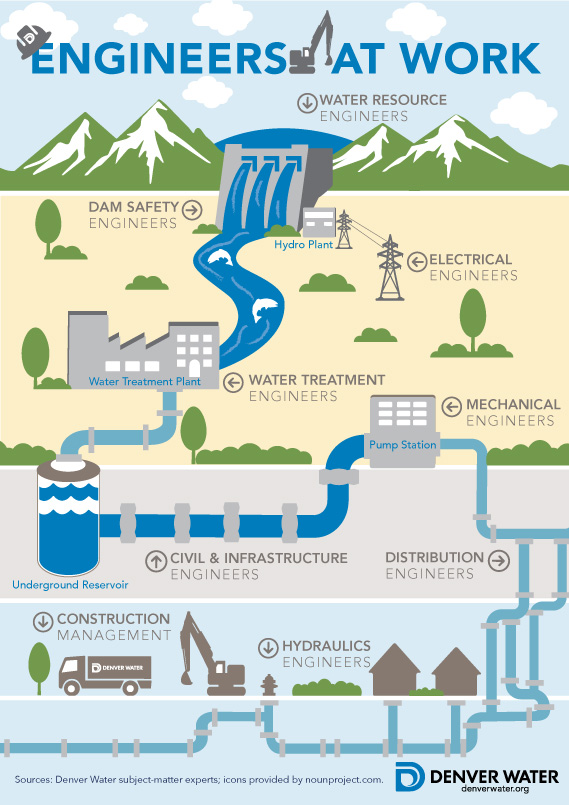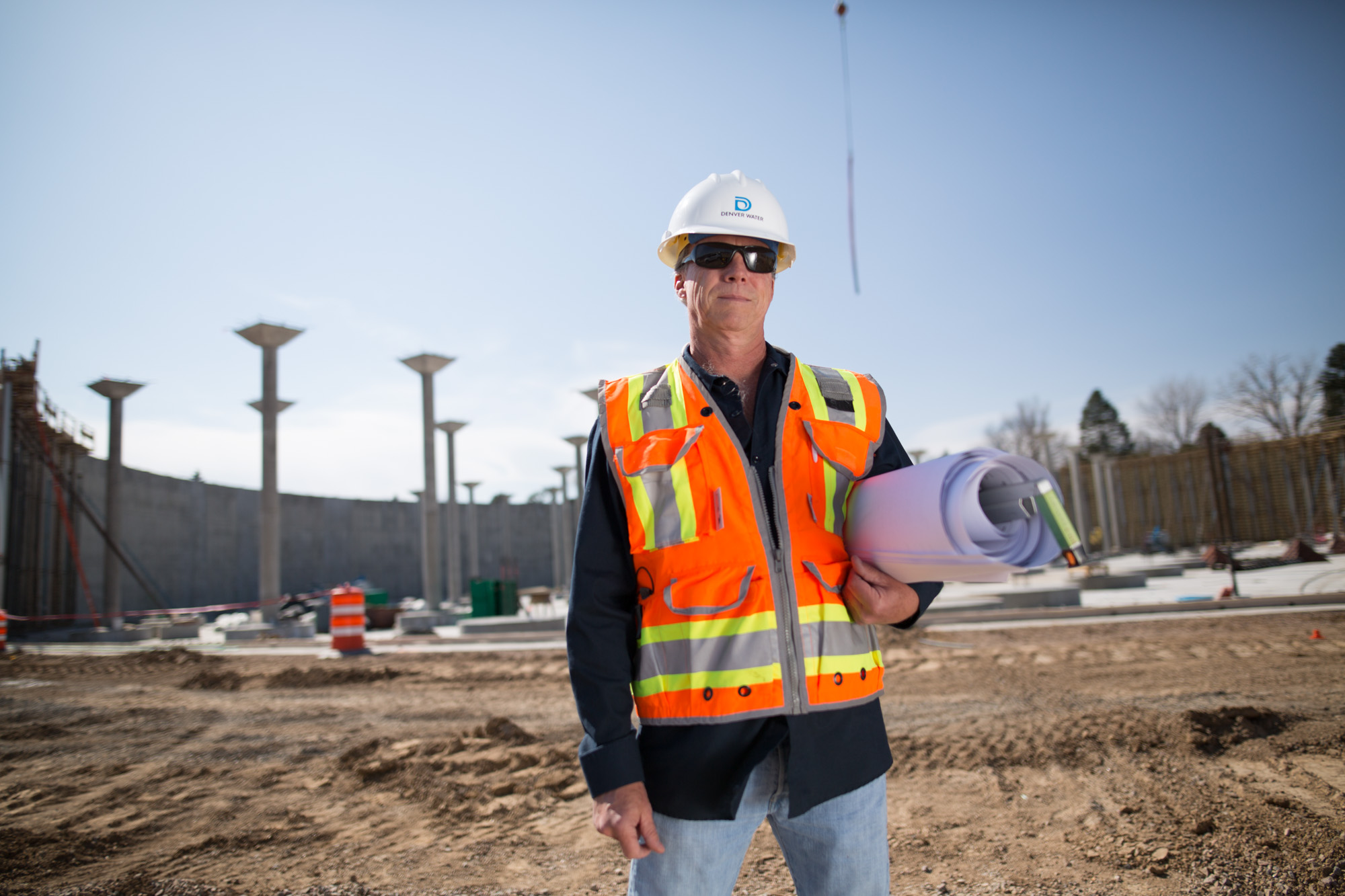
Building the future on a foundation of excellence
Denver Water’s history is full of engineering marvels. Our earliest engineers built canals, treatment plants, pump stations, dams and an extensive network of underground pipes to collect, store and distribute water to Denver residents.
Arguably, without these engineering feats that brought water across mountains to where people first settled in the state, the Denver metro area would not exist as it does today.
From dam safety engineers who ensure the structural integrity of our dams, to distribution engineers who design the underground systems of pipes that deliver high-quality drinking water, the engineering team works from start to finish on more than 100 projects each year. In 2017, this team was responsible for $150 million in engineering projects.
 Let’s take a closer look at those roles and responsibilities:
Let’s take a closer look at those roles and responsibilities:
Water resource engineers: Where the journey begins
These engineers coordinate the complicated water rights process to make sure we’re getting the water we legally own, acquiring new water rights we need and protecting our existing rights. They also collect and analyze hydrologic data to evaluate how our water collection system responds to changes or improvements to our system, as well as determine how to operate the system so we have enough water to meet the needs of water demands.
Dam safety engineers: Ensuring safety and reliability
With 77 miles of pipes, canals and tunnels associated with 20 dams on both sides of the divide, dam safety engineers stay busy year-round conducting inspections, monitoring flood management and optimizing operations at the dams.
Electrical engineers: Keeping it all connected
Our electrical engineers work to power all of the mechanical equipment. They design the systems that control and monitor the entire distribution system, including pump stations, treatment plants, hydropower plants and more. These engineers also make sure electrical system are operating efficiently while also mitigating potential electrical hazards.
Water treatment engineers: Ensuring an effective treatment process
Our water treatment engineers work at our four treatment plants to revitalize existing filtration processes and make improvements with new technologies and materials. These engineers work with the treatment plant operators to ensure Denver Water provides customers clean, safe water, and to help solve challenges that may arise in treating an average of 190 million gallons of drinking water each day.
Mechanical engineers: Taking care of all the moving parts
With a large, complex system, there are many moving parts, and our mechanical engineers design and manage projects at 21 pump stations, seven hydroelectric plants, 20 dams, 16 outlet works and dozens of various types of valves and gates. These employees research and study each moving piece in our system to ensure everything is working efficiently to reliably send water to our customers 24/7 year-round.
Civil and infrastructure engineers: Everything in between
Civil and infrastructure engineers manage and design projects for pipes measuring between 24 inches and 10 1/2 feet in diameter, underground storage reservoirs, canals, siphons, vaults, facilities, landscaping and more. Emergencies, like pipe leaks and breaks, do happen, and this team is there to provide technical expertise to assess the type of failure and determine how to restore the structural integrity of the pipes. These engineers are on hand to help get the pipe back in service as quickly and safely as possible.
Distribution engineers: Your connection to the source
In addition to the pipes that carry water from the mountains to the city, Denver Water has more than 2,700 miles of underground distribution pipes — 20-inch-diameter or smaller — throughout our service area. Distribution engineers maintain design standards and review construction plans for all of these pipes. They design replacements for aging neighborhoods, including some areas where the original pipes can be more than 100 years old. This technical review ensures the reliability of the pipelines that are connected to 352,500 customer water taps, where businesses and homes connect to Denver Water’s system.
Hydraulic engineers: Always under pressure
Denver is growing, which means more residential and commercial development. In 2017, our hydraulic engineers conducted 435 plan reviews for new developments and 700 analyses for new fire lines. These engineers monitor the pressure at 400 locations throughout the metro area each year to make sure the system has appropriate water pressure throughout, and they identify improvements to the distribution system to maintain that reliable pressure.
Construction management: Bringing the vision to life
The construction management team manages Denver Water’s large capital construction projects, like the Ashland reservoir tank replacement, Hillcrest storage tank replacement and the North System Renewal projects, overseeing general contractors and Denver Water construction inspectors. Using their engineering backgrounds, these employees ensure the projects that are designed get built according to plan and the highest of standards. These project managers and construction inspectors oversee projects ranging anywhere from $1 to $11 million each month.
As we look to the future, we’re excited to celebrate National Engineers Week and the more than 60 Denver Water engineers who continue to design and construct the entire water system from the mountains all the way to your homes today.


